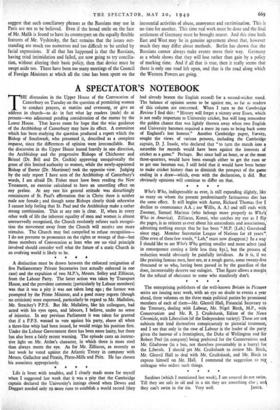Life is beset with troubles, and I clearly made more
for myself when I suggested last week that it was a pity that the Cambridge captain declared the University's innings closed when Dewes and Doggart needed only 29 more runs to establish a world record (they
had already beaten the English record) for a second-wicket stand. The balance of opinion seems to be against me, so far as readers of this column are concerned. When I turn to the Cambridge Review I find this : "History will forget a victory over Essex, which is not really important to University cricket, but will long remember the golden chance that was lightly thrown away when two English and University batsmen required a mere 29 runs to bring back some of England's lost honour." Another Cambridge paper, Varsity, sought the views of various persons, including the Cambridge captain, D. J. Insole, who declared that "to turn the match into a scramble for records would have been against the interests of cricket as a game." Perhaps. But since half an hour, or at the most three-quarters, would have been enough either to get the runs or to get one batsman out, I still hold that it would have been better to make cricket history than to diminish the prospect of the game ending in a draw—which, even with the declaration, it did. But obviously opinions will continue to differ on that.
* * * *










































 Previous page
Previous page